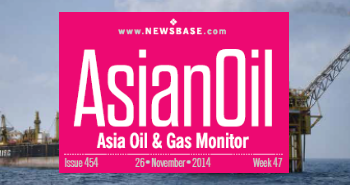Pakistan considers new oil routes from UAE, Saudi Arabia
_Cropped.jpg)
Pakistan is considering importing its crude oil from Saudi Arabia and the UAE through pipelines if the Strait of Hormuz is shut down due to the ongoing war between Iran and Israel.
Speaking to The Express Tribune, sources revealed that Pakistan’s Petroleum Division had released a report that said the Strait of Hormuz supplied 20% of global crude oil. The report continued to highlight that if Iran was to close the Strait, oil supply to the world could be severely affected – potentially pushing oil prices up to $100 to $150 per barrel. These issues were discussed in a meeting presided over by Finance Minister Muhammad Aurangzeb on June 16, which was attended by a committee that was established to monitor petroleum prices amid escalating tensions in the Middle East.
Nonetheless, the report also said that there was no immediate risk of higher prices, and that Pakistan was currently engaged in talks with global oil suppliers to ensure consistent supply.
When opting for alternatives, Pakistan’s choice of pipelines includes Saudi Arabia’s East-West Pipeline (Petroline) – this supplies crude from the country’s eastern province to the Red Sea port of Yanbu – and the UAE’s Abu Dhabi Crude Oil Pipeline (Adcop), which carries oil to Fujairah and was specifically designed to bypass the Strait of Hormuz and ensure safe passage for the commodity in case of political tensions.
Pakistan’s decision to continue imports stems from a recent decision by the country’s experts to keep oil stocks in storage inside abandoned power plants, which can hold around 1mn tonnes.
Israel’s attack on Iran has resulted in notable unpredictability in international markets – particularly in the Middle East. Pakistan’s efforts to diversify its supply is an indicator that events could be set to take a turn for the worse. Indeed, according to a statement from the Pakistani government, the high-level committee, which also includes senior representatives from important federal ministries, energy sector experts and regulatory authorities, will continue to monitor petroleum product pricing and supply dynamics as the war continues.




Follow us online